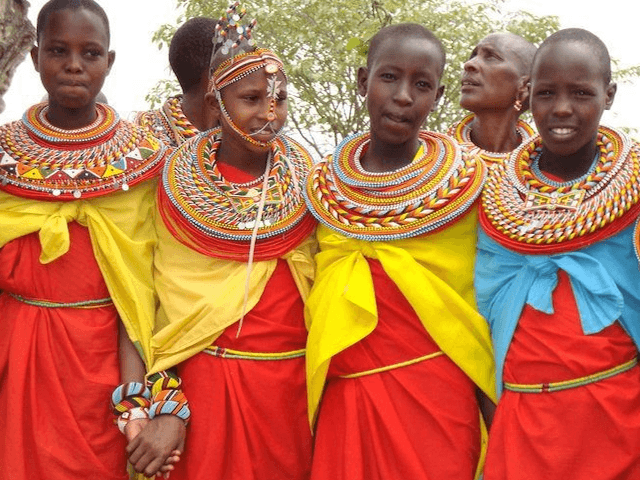The practice of “beading,” or “promising girls to their male relatives for sex,” is supposed to be illegal in Kenya, but it still occurs in tribal areas, according to a 13-year-old girl named Younis who was married off to a 78-year-old man when she was only 9 years old.
“I went to his home and I stayed with him one week,” Younis recalled. “He told me that I will be a wife but I was just innocent, I wanted to come to school. But that man wanted me to be a third wife. I told him, I will not be your wife, and he caned me.”
Younis came from an ancient nomadic tribe called the Samburu, described as “distant cousins” of the Masai. She was able to tell her story because she was rescued from the arranged marriage by a woman named Josephine Kulea, whose Sanburu Girls Foundation has taken in over a thousand young women from all across Kenya.
Kulea herself is of Samburu extraction, but spent time at a boarding school away from the tribe and began questioning its practices. In 2008, she began intervening when she heard about child marriages, which were often accompanied by female genital mutilation. One of her first rescues was only 7 years old. Another rescue described on the Foundation website is a three-year-old girl whose mother was forced into a “beading” sexual relationship when she was only 10.
Now that the Samburu Girls Foundation is well-established, they have their hands full with requests for help from women in mobile manyara villages all across the tribal areas. Kulea reaches out across Kenya with a radio show, and works with law enforcement, although she says she is well aware of the risks she faces from angry tribesmen. She has been known to dash out of interviews to perform rescue missions.
The United Nations named her its 2013 Person of the Year in recognition of her efforts. At the time of the citation, 11 of the girls she rescued were pregnant, and would have been forced to undergo abortions or watch their children left to die, but all 11 delivered their babies after Kulea’s intervention.
Despite these hardships, Kulea is described by CNN as “proud of her Samburu heritage,” and believes it can be preserved without continuing hideous traditions like female genital mutilation and beading. “There is hope. And I know when we take more kids to school in future there will be a difference in my community,” she said.
Kulea was featured in a 2011 CNN report about beading, in which tribesmen seek to defend the practice as a measure against promiscuity. A 12-year-old girl who appeared in the story had been impregnated by one of her relatives. “For any change that comes, there has to be a start, and this is the start,” Kulea said. Three years later, her crusade has still only just begun.

COMMENTS
Please let us know if you're having issues with commenting.